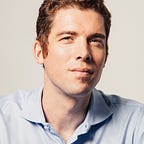The New New
Rogue A.I., Bioterror, and Other Ways Tech Might Take Us Out
British cosmologist Martin Rees argues that new technologies can save us — as long as they don’t destroy us first
 Martin Rees is the 15th Astronomer Royal, an actual senior post in the Royal Households of the United Kingdom. That means, as he writes half-seriously in his new book, On the Future: Prospects for Humanity, if the Queen of England wanted her horoscope done, “I’m the one she’d ask.” Rees isn’t actually an astrologer — he’s a cosmologist and astrophysicist, one who in a long and distinguished scientific career has made breakthroughs on black holes and the tantalizing possibility of the multiverse, while finding time to serve as president of the Royal Society and as master of Trinity College at Cambridge University, where he still works today at the age of 76.
Martin Rees is the 15th Astronomer Royal, an actual senior post in the Royal Households of the United Kingdom. That means, as he writes half-seriously in his new book, On the Future: Prospects for Humanity, if the Queen of England wanted her horoscope done, “I’m the one she’d ask.” Rees isn’t actually an astrologer — he’s a cosmologist and astrophysicist, one who in a long and distinguished scientific career has made breakthroughs on black holes and the tantalizing possibility of the multiverse, while finding time to serve as president of the Royal Society and as master of Trinity College at Cambridge University, where he still works today at the age of 76.
But though Rees can’t read your future in the stars, he is in the business of prediction. In his 2003 book, Our Final Century: Will the Human Race Survive the Twenty-First Century?, Rees raised the alarm over the dangers that emerging technologies like genetic engineering and artificial engineering could pose to the future of the human race. (The book was published in the United States with the title Our Final Hour, because, Rees…
